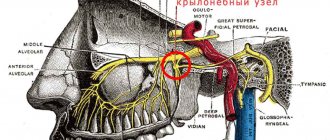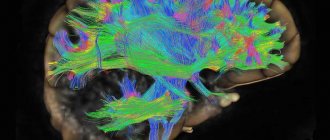What is Querulantism
The term querulantism also has another name in psychiatry - litigiousness or persistent complaints syndrome.
This disease is characterized by constant unconscious complaints about the surrounding social sphere and the behavior of other people.
The behavior of litigious people is very typical and easily recognizable in everyday life. Querulants always defend their point of view quite aggressively and show indifference to the interests of loved ones. They become fixated on their imaginary problem and try in every possible way to solve it. Very often, the complaints of litigious people do not remain only in words; they are capable of showing aggression and cruelty towards the fabricated offenders.
Also in modern psychiatry there is such a thing as the “quelerant complex.” This term describes the behavior characteristic of a pathological brawler. Such an individual complains always and everywhere, regardless of the initial situation. At the same time, his behavior is aggressive towards his interlocutor. Such a person can create a scandal out of nowhere, which will be accompanied by insults and possible assault.
Reasons for litigiousness
There are two opinions about the reasons for the development of litigious syndrome:
- Genetic reason. It provides an initial predisposition to the occurrence of litigious symptoms. In this case, the disease usually begins in people 40-70 years old in the presence of various predisposing factors: a small pension, lack of work, infringement of rights and others. According to research, litigious syndrome occurs more often in stuck individuals.
- Querulantism is a symptom of another mental illness. This theory considers querulants as psychopathic individuals capable of committing acts of a mass nature against the background of an underlying disease (schizophrenia or paranoid disorder). For example, litigators can organize mass riots or murders in order to attract the attention of officials.
Litigative syndrome can occur regardless of gender. Men and women are equally susceptible to this disease.
Description of the syndrome
People susceptible to queralism tend to constantly complain about the infringement of their rights, social injustice, deception on all sides, non-compliance with legal norms and laws. The meaning of life for such people becomes visiting courts and human rights centers, many years of proceedings in order to achieve the only possible, in their opinion, justice. The search for “victims” for their attacks gives the querulists visible and undisguised pleasure. The thirst to defend their rights in a hospital, in a store, at work or on the street is irresistible for such people. Healthy people call this all a severe case.
Quite often, querulants can become hot-tempered and even aggressive; they have a very high psycho-emotional background, they are characterized by cruelty and perseverance in achieving their goals. The Querulant can be cunning and treacherous, and disregard the concepts of morality, kindness and humanity. Litigation can be either a separate pathology or just a symptom of a more serious mental disorder of the brain.
Psychopathic individuals are most susceptible to this disease.
Symptoms of the disease
The main manifestations of queralism include:
- increased emotionality and excessive touchiness;
- constant thoughts about an imaginary infringement of personal rights;
- indifference to one's responsibilities towards other people;
- demonstrating your dissatisfaction in public;
- paranoid thoughts;
- aggressive behavior;
- persecution mania;
- exalting oneself over other people;
- excessive exaggeration of one's problems;
- constant dissatisfaction with surrounding life situations.
The querulant never realizes the painfulness of his behavior and does not admit that he has a mental illness. Such people enjoy being pitied and constantly feel inferior.
Diagnostic methods
The possibility of diagnosing queruulence depends on the form of manifestation of the disease. There are two such forms:
- Litigation as a symptom complex as part of the main psychiatric syndrome. In this case, diagnosis is not particularly difficult, since the patient is already under the supervision of a psychotherapist. When conducting psychoanalysis and psychotherapy, a qualified specialist can easily detect signs of the syndrome.
- Suicidal syndrome as an independent isolated disease. In this case, diagnosis is difficult, and people can live with this diagnosis without knowing about it for a large amount of time. For those around them, the troubles simply seem strange, and no one thinks about the psychiatric reason.
It is very important to recognize the signs of querulantism in a person in time, since his behavior without proper treatment can be dangerous for the people around him and for himself.
Only own interests
If we consider querulantism as a syndrome of litigiousness, then people suffering from this illness tend to defend exclusively their own rights and freedoms, and not society as a whole. They do not listen to the opinions of others and fight their imaginary enemies alone.
Litigators are very persistent in their aspirations; they have been engaged in litigation for many years. As a rule, the decision made by the court does not bring them satisfaction, and the proceedings continue. Their own imaginary inferiority gives querulyants hidden pleasure; they love to be pitied. Lost cases spur litigants to perform new “feats.” The Guinness Book of Records records a case where a US resident filed about three thousand lawsuits in seven years.
Reasons for litigious activity
Litigation disorder most often develops after 40 years of age. The trigger can be some event that is unfair from the patient’s point of view: dismissal, a fine issued, an increase in utility tariffs, etc. However, the true reason is always internal. This may be a genetic predisposition to litigiousness, hereditary psychopathic personality traits, or some kind of psychopathology. As an independent syndrome, litigious delirium manifests itself on the basis of heredity under the influence of psychogenic factors. Often, litigiousness acts as a symptom of a mental disorder or organic brain damage. The cause may be cerebral atherosclerosis, paranoid schizophrenia, obsessive-compulsive disorder, supranuclear palsy and other diseases.
Diagnosis, treatment and prognosis of queralism as a syndrome
Litigative syndrome is diagnosed depending on the form of manifestation. If its manifestations are in the symptoms of the underlying disease, then there will be no serious problems with making a diagnosis. If litigiousness acts as a separate syndrome, then the situation becomes more complicated. Moreover, not all patients see a doctor. Some live with litigious syndrome all their lives, and others consider them simply strange. The boundary between normal and pathological in queruulantism may be unclear. It is important to recognize litigious syndrome in time in the interests of the patient and others.
RELATED MATERIALS: How to treat somatoform disorder
During treatment, again, doctors will monitor the general condition of the patient and may prescribe drug therapy to relieve symptoms - reducing anxiety, fears, regulating sleep and wakefulness, etc. They may use psychotherapy. Its effectiveness will depend on the degree to which the patient remains critical of himself and his actions. Sometimes, over time, querulantism can “subside”, and its manifestations can significantly decrease; cases of long-term remission are not uncommon (if we are talking about an isolated syndrome). And the tendency to litigiousness manifests itself in both men and women, to approximately the same extent. Sometimes, with a successful outcome of the trial, for example, the symptoms are significantly smoothed out.
Litigation arises for various reasons, but a single mechanism of occurrence for different manifestations and forms has not been identified at the moment. Can a litigious personality be formed under the influence of external circumstances or is it a genetic predisposition to the syndrome? This is unknown for now. Among the clinical features of litigiousness one can highlight the absence of hallucinations. The emotional-volitional sphere is disturbed, but without sharp pathological manifestations.
Querulantism often manifests itself in old age or adulthood. The course of the disease, the activity of development, and the likelihood of recovery depend on many factors. The forms of manifestation of litigious syndrome can be different - from the mildest, almost imperceptible, to severe, with high activity and severe delirium, when it becomes necessary to place the patient in a hospital.
Delirium of sinfulness
In the case of delusions of sinfulness, the patient considers all other people better, more noble, sinless. Under the weight of a pathologically inflated sense of guilt, he demands from his social environment only punishment for his sins. There is also a desire for justice here, but it is expressed in condemnation of oneself. In the search for absolute justice, one can see the perception of children and teenagers in adults as the absolute embodiment of justice. Delusions of sinfulness most often occur in depression, especially involutionary depression, sometimes in schizophrenia and senile psychosis. It is usually always associated with low mood.
Development hypotheses
People aged 40 to 70 years are most susceptible to developing litigious delusions. The main reason can be called psychogenic factors affecting the psyche. This is a small pension, a financial crisis that is acutely experienced in the country, unemployment, and infringement of human rights. All these factors can lead to the development of Querulant syndrome.
Loading…
At the moment, there are two hypotheses of its origin:
- genetic;
- mental disorder.
The genetic hypothesis considers the origin of litigious conditions due to congenital predisposition. The trigger can be any of the listed psychogenic factors (loss of job, inability to live on a small salary, etc.).
More susceptible to the syndrome are susceptible people with increased emotionality, touchiness, and a tendency to perceive any criticism as an attempt to encroach on their personal space and privacy. Starting to actively defend against false infringements of rights, a person can reach a state of litigious delirium, becoming obsessed with the idea of defending his opinion and allegedly violated dignity.
The second hypothesis considers querulants as a group of mentally ill people and psychopathic individuals. Psychopathy with a tendency to querulantism is characterized by the presence of the following characteristics:
- delusional ideas involve not only what is directly related to judicial or other proceedings, but also various factors even remotely related to this;
- there are no hallucinations, but a state of false memories arises, on which the ideas of litigious delusions are based;
- the spheres of intellect and emotions do not immediately undergo major changes, aggravation occurs as the disorder develops and depends on the frequency and duration of periods of exacerbation;
- behavior is formally correct, but within the framework of the syndrome it is inappropriate and sometimes overly aggressive.
Querulantism as a sign of schizophrenia is already considered when a person with a querulant mental disorder begins to organize mass riots, which leads to a large number of victims.
Wanting to attract the attention of society, authoritative people and institutions, people commit socially dangerous acts that lead to disastrous results. Admitting such a litigious patient with schizophrenic tendencies to a psychiatric hospital may be necessary. This step usually causes an adverse reaction from the patient, causing an affective reaction. Treatment is long-term and does not always guarantee a favorable outcome.
At the moment, psychiatrists do not generalize the concepts of schizophrenia and queralism. Schizophrenia is considered as a secondary psychogenic disease in people with a predisposition to litigious-querulant tendencies.
How to deal with this?
Diagnosis and treatment of litigious syndrome is a complex and time-consuming task. The main problem is that the patient does not recognize his illness, and perceives attempts to prescribe a psychiatric examination and treatment as an infringement of his rights, which often only aggravates the patient’s condition. In dealing with such patients, it is important to show kindness and tolerance. If the cause of litigious activity is brain damage or mental illness, then it is the primary disease that should be treated.
In the treatment of litigious syndrome, the drugs most often used are antipsychotics, tranquilizers and antidepressants. It should be understood that such disorders cannot be treated with medications alone. Psychotherapy still plays a key role.
It is working with a psychotherapist that helps the patient realize his painful condition and inappropriate behavior. A psychotherapist or practicing psychologist is able to identify deep, often unconscious, causes of the disorder. When treating litigious syndrome, it is important to understand that any social traumatic events can lead to new acute episodes. Therefore, with the help of cognitive behavioral therapy, it is necessary to teach the patient to respond correctly to stress factors and to adequately perceive social events.
Treatment
Querulence in psychiatry is considered a fairly common illness. In the treatment of litigious syndrome, two approaches are used:
- Drug treatment, including the use of antipsychotics and tranquilizers.
- Psychotherapy, including psychoanalysis, cognitive behavioral psychotherapy and psychodynamic approach.
What can play a positive role?
Only patience and highly qualified specialists can play a positive role in the treatment of queralism using the psychoanalytic method. Litigative individuals skillfully spread their negativism to others. They often accuse the psychotherapist of incompetence, especially during theoretical analysis and search for the causes of the disease.
Cognitive behavioral therapy is aimed at eliminating conflict situations. The specialist helps the querent understand the underlying cause of the pathology, remove obsessions, and explain suspiciousness about the infringement of interests and rights.
The need for hospitalization
In some cases, it is urgently necessary to place the litigant in a psychiatric clinic. This leads to a negative reaction from the patient, causing in some cases a state of passion. Therapy is usually long-term and does not guarantee a complete cure.
Querulants are often quick-tempered and suspicious, selfish and prefer not to pay attention to the interests of others. Their behavior is demonstrative and aggressive, and quite often it is only veiled under the assertion of their rights. The complaints of such people usually have a threatening overtone (this could be a threat of dismissal, payment of compensation for moral damage, or even physical harm). Most often, threats are exclusively verbal, but there have also been cases of illegal acts.
Litigation. How to build a relationship with a querulant?
Do you know people who constantly complain about unfair treatment and try with all their might to defend their rights, running through the courts and other legal authorities? The actions of such people sometimes reach the point of absurdity, and the efforts spent on the fight for justice are not comparable to the size of the real problem. In psychiatry, this kind of behavior falls under the concept of litigious syndrome or litigiousness. There are enough examples of such mental deviations in literature and cinema. How to distinguish a sane person defending his rights from a complainant with psychopathology?
Treatment
Therapy for patients with vexatious delirium syndrome includes two main points:
- Drug therapy. Provides for the prescription of tranquilizers and antipsychotics.
- Psychotherapy. It involves methods of psychoanalysis, psychodynamic approach, cognitive behavioral psychotherapy.
The psychotherapeutic method of treatment requires that the doctor not only have high professional qualifications, but also maximum patience, because litigious people can actively project their aggression and negativism onto the people around them. This is especially true at the moment when the doctor begins to find out the cause of the syndrome using psychoanalytic theory.
Cognitive behavioral therapy is designed to understand the cause of the syndrome and explain to a patient who is not aware of his illness that he is experiencing an imaginary infringement of his rights. It also helps eliminate obsessive thoughts that cause litigious delusions.
Treatment of litigious syndrome is lengthy and does not always provide for recovery. Querulant can be in a stable state of remission for many years, and then return to the initial signs of the syndrome under the influence of provoking psychogenic factors.
Of course, only an experienced psychotherapist should work with such patients. Treatment at home can be not only ineffective, but also dangerous.
Litigation syndrome
or
querulitism
(from the Latin querulus - complaining) is an irresistible desire for
litigious
activity, characterized by the struggle against “injustice” and for the restoration of one’s rights and infringed interests.
Litigators (querelants)
are a clinically heterogeneous group of mental patients and psychopathic individuals.
Over several decades of studying patients suffering from litigious behavior
, two scientific views on this problem have emerged.
The first doctrine viewed this disorder in terms of an innate predisposition to litigiousness
against the background of psychopathic personality traits.
Another concept highlighted litigiousness
and
litigious
delusion (the most severe manifestation
of litigious syndrome
) as one of the types of paranoia.
The terms “ querulant
paranoia”, “
litigative
paranoia”, “litigational paranoia” can be found in the literature on psychiatry today.
Moreover, a small number of psychiatrists continue to classify the litigious syndrome
as paranoia, while milder forms are regarded as
pseudo-queerulantism
.
However, most psychiatrists now distinguish between paranoia and litigiousness
, presenting the latter condition as a psychogenic disease that develops against the background of a hereditary predisposition as a result of the influence of external circumstances.
In addition to the litigious syndrome
in the form of an independent disorder or, as found in some scientific sources, “genuine”,
litigious
states are distinguished that occur in various mental and organic diseases: schizophrenia, manic-depressive psychosis, progressive supranuclear palsy, cerebral atherosclerosis and other diseases.
This is symptomatic litigiousness
, appearing sporadically against the background of decompensation of other diseases and pathological conditions.
Litigation syndrome
can develop at any age, but most often debuts over the age of 40 years.
The onset of litigation
can be facilitated by “unfair” dismissal from work, ineffective treatment, incorrectly calculated utility rates, unfair division of property, and any other manifestations of social injustice.
Long-term litigation
the struggle manifests itself in the form of many years of persistent litigation, accompanied by numerous complaints and appeals to higher authorities.
Often, a court decision not in favor of the querulist
at one stage is considered by him as a clear injustice, stimulating his protest activities.
Failures not only do not stop such patients, but even more convince them of their biased attitude towards him. There are new protests, accusations against judges, and insulting attacks towards the court. Such people show extreme tenacity and perseverance, achieving their goals in matters of protecting and restoring their rights or compensating for material and moral damage.
Querulants
often very self-confident, stubborn, selfish.
They are characterized by hysterical features and hypomania. In this case, on the contrary, an inability to adequately understand the rights of others is revealed, indifference to the rights and interests of other people with an extreme overestimation of one’s own interests. Litigators
by pettiness, getting stuck on unimportant details, the ability to elevate minor everyday situations to the rank of events of national importance, and inflating minor grievances into a serious insult.
In more severe cases, delusional ideas are formed in the form of delusions of persecution, and a typical clinical picture of the so-called litigious
delirium.
Delusional ideas are most often limited to the circle of judicial experiences and do not go beyond the scope of a specific court case. Hallucinations are not typical. The behavior of such subjects can be quite calm, however, at the height of litigious
actions it can become not entirely appropriate, and sometimes even aggressive. Socially dangerous actions and even violent actions are possible.
Thus, clinically in different cases it can vary from mild cases with little activity and a short course to severe forms with pronounced persistent delusions and a long course.
Litigative
activity usually persists for several years, then, as a specific conflict situation is resolved, it may fade.
However, if new unfavorable circumstances arise after the period of remission, a new wave of litigation
.
Litigation syndrome
or
querulantism
is a topic that appeared on a site with medical content not by chance.
Indeed, a doctor of any specialty will sooner or later encounter a querulant
. I will give one example from my practice.
Patient K. has been undergoing outpatient and inpatient treatment courses for more than 20 years with different doctors and in different hospitals. Over the years, she has written dozens, perhaps hundreds of complaints against many doctors individually and against departments in general. The patient wrote to everyone: to the local health committee, to the governor, and even to the president. Everyone turned out to be bad: MSEC doctors, because they don’t give a group; practicing doctors, because they treat poorly; diagnostic doctors because they incorrectly interpret the results of examinations, and so on.
Periods of exacerbation, when the patient “scribbles” further complaints, are replaced by remissions of varying duration. At this time, she disappears from the field of view of doctors, only to appear again later. The patient is sincerely confident that her behavior is correct, and no one really wants to treat her properly.
The patient considers herself a mentally healthy person. According to the laws on psychiatric care existing in Russia, it is impossible to examine a patient with a psychiatrist without his voluntary consent if he is not dangerous to himself or to others. Naturally, in our case, the patient will never agree to such a step, because she completely lacks criticism of her condition.
For this reason, treatment of litigious syndrome
remains a fairly serious problem.
Moreover, there are cases where the placement of such patients in a psychiatric hospital not only did not have a positive effect, but, on the contrary, acted unfavorably, further fixing litigious
ideas.
If we talk about drug therapy, then such patients are prescribed antipsychotics: neuleptil, sonapax, chlorprothixene. In case of a sharp deterioration of the condition, the administration of Relanium, tizercin and other drugs is recommended.
In conclusion, I would like to wish all colleagues who in one way or another come into contact with such patients the most important thing. Namely, PATIENCE.
Do you know people who constantly complain about unfair treatment and try with all their might to defend their rights, running through the courts and other legal authorities?
The actions of such people sometimes reach the point of absurdity, and the efforts spent on the fight for justice are not comparable to the size of the real problem. In psychiatry, this kind of behavior falls under the concept of litigious syndrome or litigiousness. There are enough examples of such mental deviations in literature and cinema. How to distinguish a sane person defending his rights from a complainant with psychopathology?
Definition and signs of litigiousness
Already in the 19th century, they began to study such a phenomenon as the querulant reaction. K. T. Jaspers, a psychiatrist from Germany, placed this condition on the border between psychopathic fanaticism and delusion, calling queralism psychosis of passion. Later, persistent complaints received another name - litigiousness. In the modern world, litigious syndrome is practically not studied. This is due to the recently widespread tendency to defend rights imposed by the West, in particular the United States. The line between the norm in this matter and pathology has become blurred, and it is quite difficult to define queralism.
Querulantism is a syndrome that arises and develops according to the following scheme. A person is captivated by the idea of injustice committed against him. Sometimes this is due to a real court decision not in favor of the claimant. This becomes the starting point and the emergence of protest against the infringement of his rights.
This is followed by lengthy bureaucratic activity in various instances, endless complaints, lawsuits, appeals, etc. Cases of decisions not in favor of the litigant are perceived by the latter as a biased attitude, and everything starts all over again. Such a person is not able to soberly assess the situation; the interests of others fade into the background. The goal of life becomes to prove that you are right.
Querulantism is a syndrome that affects both sexes; its peak development occurs between 40 and 70 years of age. Querulantism manifests itself especially strongly and often in times of severe social and political crises. Unemployment, low pensions, infringement of rights and freedoms - all this is a trigger for litigious people.
There are two hypotheses for the development of queralism.
How long does the exacerbation last?
The exacerbation stage can last up to several years, followed by the onset of remission. However, a new round of the disease may begin against the background of psychosocial changes. Unfortunately, sometimes treatment for litigious syndrome can also make the situation worse.
Relationships with querulyants are quite complex and ambiguous. If this pathology has developed in a family member, it is necessary to urgently consult a specialist and begin treatment. The problem in this case is that it is impossible to forcibly place a person in a medical institution if the person does not pose a danger to others and himself. But the querulant will not give his consent to hospitalization due to the lack of criticism regarding his condition.
We looked at the meaning of the word “queerulantism”. We hope you never have to meet such people in your life.
Litigation is a person’s tendency to constantly argue, litigate, and defend their interests at any cost, even by “going over their heads.” This syndrome is also called queruulantism; this definition comes from the Latin meaning of the word - to complain.
People prone to litigiousness constantly complain to others that their rights are being grossly violated, there are only deceivers around who dream of trampling on their interests, and there is no justice in the world. Querulants are ready to spend days and nights in search of justice; they go to courts as if it were work, and they derive enormous pleasure from the process of finding the culprits of all their troubles. Often, querulants have character traits such as cruelty, aggression, perseverance, and sometimes treachery. To achieve their goal, such people completely abandon moral principles, forgetting about the concepts of conscience, nobility, and kindness. In search of protection for their violated rights and freedoms, litigators are even in the store, in the hospital, at work, trying to prove that they are right.
Having understood what litigiousness is, you need to understand for what reasons the syndrome arises. Scientists have been studying litigious-querulant tendencies since the 19th century, paying close attention to this issue. Psychiatrists were of the opinion that this condition was borderline between fanaticism in psychopathic manifestations and delusion.
Psychiatrists still describe this condition, adhering to this opinion. This is how querulantism syndrome begins. A person susceptible to litigious syndrome is obsessed with the idea of legal damage and legal injustice that was allegedly committed against him. It all can start with a very real fact, for example, with a court decision made not in favor of the subject or a fine. The Querulant perceives this as an action against his rights, reacting in the form of a violent protest.
Then endless bureaucratic red tape begins with a bunch of complaints to higher authorities, appeals, and the initiation of new cases. Refusals to consider cases and failures are considered by the litigant as a biased attitude towards him, which causes more and more outbursts of anger. A person loses the ability to soberly separate the boundaries between his own and others’ rights; the goal of proving one’s rightness, regardless of the interests of others, comes to the fore.
Ideas related to success in a legal case become dominant and invaluable. This is how the full picture of the syndrome called litigious delirium develops.
Sign of mental disorder
This is a more severe case. As mentioned above, queralism can only be one of the symptoms of another disease, schizophrenia or paranoia. In this case, litigious people are considered mentally ill people. Litigative delirium can cause aggression. There have been cases in psychiatry when litigious people staged mass riots and even committed murder. Querulants are characterized by the absence of hallucinations, but false memories cannot be excluded, becoming the basis of litigious delusions. The situation worsens during periods of exacerbation and depends on their duration. Formally, the behavior of querulants is correct, but often too aggressive and inappropriate.
Key symptoms
Diagnosing psychopathology with litigious delusions is not always easy. Such a disorder can occur for a short time in a mild form with mild symptoms without aggression, or it can drag on for decades and occur in a severe form with clearly expressed overvalued delusional ideas. Remission usually lasts for years, but when new conflict situations arise, the disorder worsens.
The most common symptoms of litigiousness are:
- the patient’s deep confidence in his importance, significance and special position in society;
- the presence of overvalued ideas, hypomania or persecution mania, paranoid activity, demonstrative (often with aggression) behavior;
- an uncritical attitude towards one’s painful condition, deep confidence in one’s own rightness;
- exaggeration, inflating the problem, negativism, tendency to suspiciousness, self-centeredness, indifference to the rights of others;
- obsessive thoughts regarding infringed interests and rights, delusions, emotional instability, resentment;
- eternal dissatisfaction with the social and political situation, the attitude of superiors, work in general, health care and other authorities.
Symptoms
The main symptoms of queralism are:
- Touchiness and high emotionality.
- Endless criticism of the political situation, healthcare, work.
- Persecution mania.
- Paranoia.
- Litigious nonsense.
- Aggression towards others.
- Disregard for the rights and interests of others.
- Egoism and egocentrism.
- Negativism.
- Exaggerating the scale of your own problems.
- Demonstrative behavior.
- Confidence in your importance.
- Denial of existing illness.
Many people are interested in what queralism is and how it is treated. We've dealt with the first part of the question, it's time to move on to the second.
Characteristics of litigiousness
At first glance, the behavior of a litigant seems logical; after all, a person must protect his rights and defend his interests. But there comes a time when protecting one’s interests takes on painful features. Becomes the only meaning of life. Other problems simply disappear from life. There is only one goal - to defend your interests. It seems to the litigant that everyone around him is constantly encroaching on his personality, honor and dignity. Gradually, the features of the super value of your ideas appear. The delusion of persecution is “woven” into the litigious delirium. A person stops trusting those around him; it seems to him that there are only enemies around him. The patient begins to enter into protracted conflicts.
RELATED MATERIALS: How to get rid of psychological trauma
At this stage, querulantism significantly disrupts socialization. Most acquaintances may simply stop communicating with the patient. Litigative behavior is characterized by suspiciousness and distrust, a tendency to blame others for all troubles, but not oneself. Moreover, after a stubborn struggle for his rights, the patient can give up everything, grab hold of another idea and, with renewed vigor, begin new proceedings, exacerbating conflicts with other people.
Manifestations of litigiousness in character:
- Excessive distrust (enemies all around)
- Aggressiveness (with almost everyone around you)
- The habit of conducting monologues (patients often talk to themselves for a long time)
- Inability to accept criticism of one's actions
- Loss of purposefulness of behavior (as a immersion of the psyche in a pathological state)
- Hysterical manifestations
To a person suffering from litigious syndrome, it seems that everyone is oppressing him, wants to take his place, spreading rumors and gossip against him, and the delusion of persecution intensifies. They are defaming his impeccable (as he believes) reputation. Often, life goes on like this. Sometimes improvement may occur if the patient moves to another city, for example.
Litigative behavior is characterized by endless litigation, which greatly exhausts the patient. Both physically and mentally. Not to mention the financial situation. Sometimes, under the influence of a painful condition, such people commit crimes. Often due to their excessive aggressiveness.
Higher mental functions (memory, attention, thinking, speech) are usually without obvious disturbances. But again, this is only if we are talking about a selected syndrome and in some forms of mental illness.
Delusions of persecution
In the case of delusions of persecution, the surrounding world becomes hateful, hostile, and threatening. The evil people around are organized into secret clans, their methods of surveillance and destruction are very diverse: listening devices; devices emitting deadly rays; poisons added to food or sprayed into the air, etc.
A delusional attitude rarely applies to all people. Usually they are divided into good and bad. The patient trusts the good ones, fears and hates the bad ones. There are no indifferent, neutral or “average” people. Similarly, during war, the world around us becomes polarized into enemies and allies. Persecutory delusions are probably the most common form of delusion; it can be observed in any psychosis, and transient delusional attitudes can be observed in neuroses and psychoses.
Who is this wrangler?
In the modern world, an integral part of which is the struggle for the observance of civil rights and freedoms, zealously defending one’s position in court is not always a mental deviation. A true litigator and backbiter with a mental or personality disorder not only fights for his rights, but sees the meaning of his life in this. Moreover, he simply does not care about the interests and rights of other people. Having such a neighbor is not a great joy; such a person often acts as an informer and can endlessly write complaints against neighbors to all authorities on various occasions. A litigious person (or a querulant) is a selfish, stubborn, petty and self-confident person with hysterical and hypomanic traits, who tends to get hung up on unimportant trifles. In severe cases, patients develop delusions of litigiousness against the background of legal proceedings, which in ICD-10 is included in the category of other chronic delusional disorders (F22.8). Failures only spur litigation to new lawsuits and complaints, further convincing them of the bias of judges and social injustice. In extreme situations, protests and other inappropriate litigious actions can be accompanied by aggression and even become socially dangerous.
Sources
- https://NeuroDoc.ru/bolezni/psycho/sutyazhnichestvo.html
- https://fb.ru/article/347030/kverulyantstvo—eto-nepreodolimaya-sutyajnicheskaya-deyatelnost-osnovnyie-priznaki-i-sposobyi-lecheniya-kverulyantstva
- https://3aaa-sp.ru/sklonnost-k-sutjazhnichestvu/
- https://opsihoze.ru/psihicheskie-narusheniya/sutyazhnichestvo-kverulyanstvo-diagnostika-i-lechenie.html
- https://depressio.ru/slovar-terminov/204-sutyazhnichestvo.html
- https://vseostresse.ru/psihicheskie-rasstroystva/sutyazhnichestvo.html
Ukraine: delirium of litigiousness in international courts. Olga Shelkova
To understand the processes taking place in Ukraine, it is best to turn not to history, political science or jurisprudence, but to psychiatry. It is this branch of medical science that allows us to most deeply evaluate the motives of the actions of the Ukrainian leadership. For example, with regard to Ukraine’s endless attempts to demand apologies, compensation and “complain to the local committee”, excuse me, international courts.
Modern psychiatry defines this type of behavior as delirium of litigiousness, in which patients constantly complain about infringement of personal rights, social injustice and the lack of proper legal norms. Filing applications to courts and human rights protection centers, and many years of ascertaining the guilt of the other party, is the meaning of life for such individuals. Litigators are quite hot-tempered, suspicious, selfish and indifferent to the interests and rights of other people. Their behavior is demonstrative, often aggressive, veiled as a defense of personal rights. According to numerous studies, the complaints of litigious people have direct or indirect threatening overtones. Persistent litigators usually threaten with dismissal, payment of financial compensation, or physical harm. As if it was written about Ukraine.
No matter how terrible punishments Ukraine threatened Russia over the years of independence. The Ukrainian authorities could see “infringement of rights” even in the supply of gas and the construction of factories. With imminent threats of prosecution and compensation for the “Holodomor”, “Soviet occupation”, “Stalinist repressions”, “appropriation of part of the property of the USSR”, etc.
But the litigious activity especially intensified, of course, after the February coup d'etat. The Stockholm arbitration court is inundated with claims from Ukraine regarding gas contracts, which Kyiv refuses to pay due to the “unfairness” of the price of blue fuel supplied by Gazprom, and is now demanding to stop the construction of Nord Stream 2.
The other day, P. Poroshenko said that “in two weeks you will see a whole series of judicial initiatives that Ukraine and the enterprises that we will accompany will provide judicial protection of the state interests of Ukraine under many conventions that we will present in various international courts.” As we see, although the plans for trillions of dollars in compensation have died down somewhat, Kyiv is not giving up trying to snatch at least something.
In a recent interview with Mirror of the Week, Deputy Minister of Foreign Affairs of Ukraine for European Integration E. Zerkal explained that “having analyzed the existing international agreements, we have identified several treaties on the basis of which we can protect our rights. These are the Convention on the Elimination of All Forms of Racial Discrimination, the Convention for the Suppression of the Financing of Terrorism, the UN Convention on the Law of the Sea, as well as the Ukrainian-Russian intergovernmental agreement on the promotion and mutual protection of investments.”
The most curious thing is that Ukrainian lawyers themselves perfectly understand the futility of this judicial fuss. In particular, Vice-Speaker of the Verkhovna Rada O. Syroed emphasized that Ukraine has no legal grounds to demand compensation from Russia for damage from the military conflict in Donbass, since Ukraine did not declare martial law and did not legally recognize the self-proclaimed republics of Donbass as terrorist organizations: “We do not We have no reason to demand compensation for those losses, for the losses that Ukraine suffered during the war of independence with the Russian Federation.” The aforementioned E. Zerkal also takes a realistic view of the chances, declaring that “in most processes we are pioneers. And that’s an added complication.”
Indeed, even those pitiful three conventions and one treaty that the Kyiv litigations scraped together have little judicial prospects.
In particular, in accordance with the provisions of the International Convention on the Elimination of All Forms of Racial Discrimination, resolution of disputes regarding violations of the convention is considered within the framework of the Committee on the Elimination of Racial Discrimination. The Committee will consider the matter referred to it after it has determined, in accordance with generally accepted principles of international law, that all available domestic remedies have been tried and exhausted. After the Committee has received and carefully verified all the information it considers necessary, its Chairman shall appoint a special Conciliation Commission, which shall prepare and submit to the Chairman of the Committee a report containing its conclusions on all matters relating to the facts of the dispute between the parties and such recommendations , which she recognizes as necessary for a peaceful resolution of the dispute. Within three months, these States must inform the Chairman of the Committee whether they agree with the recommendations contained in the Commission's report. In addition, a State Party may at any time declare that it recognizes the competence of the Committee, within its jurisdiction, to receive and consider communications from individuals or groups of individuals who claim to be victims of a violation by that State Party of any of the rights set forth in in this Convention. The Committee must not accept any communications if they concern a State Party to the Convention that has not made such a declaration.
Translating from legal language into Russian, before going to court, Ukraine is obliged to go through the dispute resolution procedure provided for by the Convention. The decisions of the commission are advisory in nature, and appeals from individuals and organizations that Ukraine intends to provide as examples of violations of the provisions of the Convention by the Russian Federation cannot be accepted for consideration without the consent of the Russian side.
As for the International Convention for the Suppression of the Financing of Terrorism, the plans of official Kyiv look like a striking example of alternative genius. Firstly, in accordance with the provisions of the document, only individuals, and not states, are responsible for the financing of terrorism. Therefore, E. Zerkal’s statement that the International Court of Justice can recognize Russia as a sponsor of terrorism is only suitable for television propaganda and political rhetoric. Secondly, the Convention does not apply in cases where the crime is committed in one State, the alleged offender is a citizen of that State and is present in the territory of that State. The so-called terrorists of the DPR and LPR are formally citizens of Ukraine, and the territories of the republics are the territory of Ukraine. And finally, as stated above, even Ukraine itself has not legally recognized the republics as terrorist organizations in accordance with the law, let alone the international community.
The situation with the UN Convention on the Law of the Sea is no better. In 1997, when signing the Convention, Russia made a reservation that “it does not accept the dispute settlement procedures provided for in the convention, leading to decisions binding on the parties, in disputes regarding the exercise of sovereign rights and jurisdiction.” Crimea, territorial waters, the Kerch Strait and the continental shelf are under the jurisdiction of the Russian Federation, where Russia exercises its sovereign rights. And since the reservation was recognized by the relevant UN bodies, Russia does not recognize the decision of the International Maritime Tribunal.
The use of a bilateral agreement on the protection of investments is completely out of the realm of behavior of a non-commissioned officer's widow who flogged herself. By going to court to protect Ukrainian investments in Crimea, Ukraine is thereby recognizing Russia's jurisdiction over the peninsula. I’m curious, in the brains of which genius from the jurisprudence was born such a breakthrough idea?
Of course, the best way to defend is to attack. Apparently, Ukrainian leaders have mastered this teenage wisdom to perfection in order to cover up their own crimes with accusations against Russia. If anyone is to be accused of violating international law, it would be the Kyiv junta.
Thus, the Convention on the Elimination of All Forms of Racial Discrimination expressly obliges each State Party to condemn all propaganda and all organizations based on ideas or theories of the superiority of one race or group of persons of a particular color or ethnic origin, or attempting to justify or encouraging racial hatred and discrimination in any form whatsoever. In particular, “Declare to be a punishable offense by law all dissemination of ideas based on racial superiority or hatred, all incitement to racial discrimination, and all acts of violence or incitement to such acts directed against any race or group of persons of a different color or ethnic origin , declare unlawful and prohibit organizations and organized and all other propaganda activities that promote and incite racial discrimination, and make participation in such organizations or activities an offense punishable by law.”
At the same time, such openly racist and Nazi organizations as “Right Sector”, VO “Svoboda”, “Patriot of Ukraine” operate freely in Ukraine, and the representatives of these organizations fighting in Donbass are military men subordinate to the Ministry of Defense, the SBU and the Ministry of Internal Affairs. Contrary to the provisions of the Convention guaranteeing equal rights to representatives of all races and peoples, the Verkhovna Rada adopted a law suspending the operation of a number of international human rights standards for residents of Donbass.
The Ukrainian state hosts on its territory and uses representatives of international terrorist organizations in hostilities. In particular, the battalion named after them takes part in the so-called ATO. Dzh. Dudayev and the battalion named after. Sheikh Mansur, closely associated with the terrorist group Caucasus Emirate. On the border with Crimea, a “Crimean Tatar” battalion, subordinate to the Ministry of Defense of Ukraine, consisting of 560 militants, is being formed, where militants of the Turkish “Grey Wolves”, the Nurcular organization and the Hizb-ut-Tahrir sect have already been spotted. According to Polish journalist M. Mamon, ISIS militants also feel free in Ukraine, receiving Ukrainian citizenship and exporting weapons from the country to hot spots. One can also recall the numerous calls by Ukrainian politicians to provide military assistance to Daesh (an organization banned in the Russian Federation) in Syria in their fight against Russia.
Terrorist acts on the border with Crimea, attacks on branches of Russian banks supported by the Ukrainian authorities, threats of terrorist attacks on the Kerch crossing and a naval blockade of Crimea have long become a reality. Perhaps it is precisely these violations of international conventions that Ukraine wants to discuss by turning to international courts?
However, they will have to answer not only for this, but also for war crimes and crimes of genocide committed in Donbass, torture and murder of civilians, hostage-taking, the use of prohibited weapons, destruction of civilian infrastructure, and deprivation of people's civil and social rights.
The approach used by Kiev “read here, don’t read here, fish was wrapped here” in relation to international courts does not work. Ukraine’s limited recognition of the jurisdiction of the ICC only in relation to events that occurred in Ukraine before 02/22/2014 will not in any way save the entire complex of evidence and evidence regarding the events in Ukraine from being considered in court. As well as from the consideration of all data, without exception, on violations by Ukraine of the conventions against racial discrimination, the financing of terrorism and the law of the sea.
Olga Shelkova
The reaction of the French to the film about the Maidan: “Our country supports fascist detachments”












